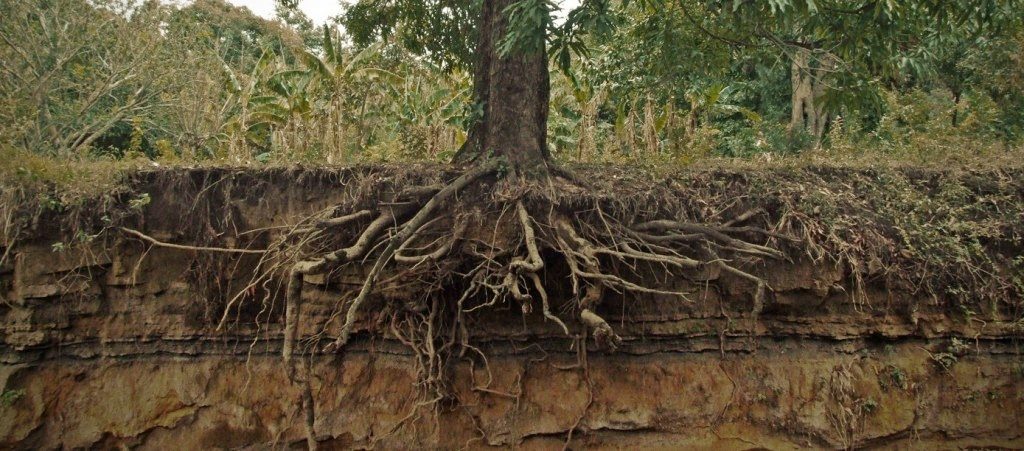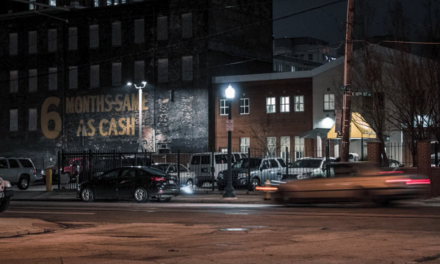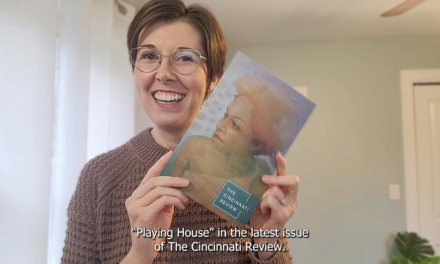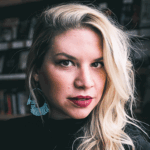Seamus Heaney’s famous poem “Digging” provides a well-loved metaphor for the writing process: pen as spade, the past as soil. “Between my finger and my thumb,” he writes, “The squat pen rests./I’ll dig with it.” In discussing their work from our upcoming winter issue (due late November), several contributors similarly explain their process as a kind of excavation—or, by contrast, a palimpsest built upon the past. Whether finding inspiration in family, biography, the literary canon, or the human body itself, these writers all reveal the constant presence of history on the page.
Joshua Coben: “Antechamber” is one of several poems about fatherhood that I’ve worked on in recent years. It reflects some of my most troubling questions about myself as a son and as a father of sons. I am trying to come to grips with the legacy of silence and misunderstanding that can be passed from taciturn father to quiet son across generations. Each son tries and, in many ways, fails to penetrate the mystery of his father. He seeks not only love, but also the means to understand himself. His father’s example, with all the unanswered questions it engenders, inevitably informs the kind of father he will grow into. This poem tries to convey the ancient dance of filial longing and paternal love, where the latter is often concealed behind barriers we do not mean to erect. The three-beat lines give it the lilt of a waltz, as father and son circle each other, changing places with each turn of the generational wheel.
 Steven Wineman: When I heard about Alice Goffman’s book On the Run, I was drawn to the subject (a study of fugitive life in a poor African American neighborhood) and curious whether she was related to the great sociologist Erving Goffman. I did some poking around on the internet and found that, sure enough, Alice is Erving’s daughter. I also learned that Erving Goffman died when Alice was a baby, which seemed especially poignant given that he had remarried only the year before, at the age of fifty-nine. I came upon something else I had not known about Goffman: his first wife suffered from bipolar disorder and committed suicide in 1964. Suddenly I had a very personal link to Erving’s biography; I also was married to a woman who struggled with bipolar disorder and who took her life. I began to think about how to weave all these strands—a young woman taking up the work of the father she lost as an infant; two women crushed by mental illness; two husbands overwhelmed by suffering and loss—into a single essay. “Erving and Alice and Sky and Elisabeth” is the result.
Steven Wineman: When I heard about Alice Goffman’s book On the Run, I was drawn to the subject (a study of fugitive life in a poor African American neighborhood) and curious whether she was related to the great sociologist Erving Goffman. I did some poking around on the internet and found that, sure enough, Alice is Erving’s daughter. I also learned that Erving Goffman died when Alice was a baby, which seemed especially poignant given that he had remarried only the year before, at the age of fifty-nine. I came upon something else I had not known about Goffman: his first wife suffered from bipolar disorder and committed suicide in 1964. Suddenly I had a very personal link to Erving’s biography; I also was married to a woman who struggled with bipolar disorder and who took her life. I began to think about how to weave all these strands—a young woman taking up the work of the father she lost as an infant; two women crushed by mental illness; two husbands overwhelmed by suffering and loss—into a single essay. “Erving and Alice and Sky and Elisabeth” is the result.
Donald Revell on “Fresh Dante”: The poem for me arose from a crowd of living palimpsests—the city of Toulouse, vivid now as it was vivid centuries ago as the capital of the Troubadors; the Garonne, a river running through the city and through the Cantos of Ezra Pound; a sense of Dante in the midst of all, still and still embodied as he was in Eternity where his shadow dumbfounded the shades, including the shades of the Troubadors themselves; and eventually my own flesh, inscribing and effacing my days. We die into our books and then out of them again. The imperfections of our words match the imperfection of our loves, in the flesh and out of it. For me, Toulouse is at the center of it all.
Kristin George Bagdanov on “Resurrection Body”: I worry about extinction. I wonder how much of my life is actually an interaction with residue (shadow, echo, fossil, language) rather than the thing itself. I wonder if a poem, like the world, is always tending toward extinction, if the poem itself is a fossil in the making. In “Resurrection Body,” I reimagine the concepts of metempsychosis and bodily resurrection by considering the fact that our material bodies are not wholly our own—they are both person and thing, self and other, human and other-than-human. The human body, for example, has ten times more bacterial cells than human ones—so what implications does this have for calling one’s body “human” or saying “I”? This poem also elegizes the current and future loss of this world; the last line could be read as hopeful, or perhaps a realization forged too late in this epoch: that the damage we’ve inflicted upon other bodies is damage we’ve inflicted upon our own, and that this residue will persist beyond any individual’s death.










